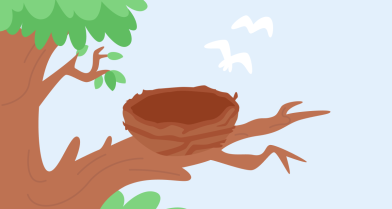Hobbies That Help Teens Build Soft Skills

The teen years are all about trying, failing, and figuring things out. Skills like teamwork, communication, and confidence don’t come from grades—they grow from life experience.
Let’s talk about hobbies and clubs that naturally help teens build soft skills, without pressure or lectures.
🎯 What Are Soft Skills—and Why Do Teens Need Them?
Soft skills are flexible life tools such as the ability to listen, solve problems, work with others, and understand emotions. They’re not something you’re born with. They’re built through practice, conversations, mistakes, and real moments.
For teens, soft skills matter now more than ever. They help with making friends, handling stress, and feeling confident in a changing world. When teens are allowed to try, fail, and figure things out on their own, they grow stronger and more resilient.
🎭 Where Soft Skills Grow: Clubs, Classes, and Teams
While not every college resume activity helps teens develop soft skills, clubs and hobbies are spaces where teens grow, connect, and try new things. What matters most in choosing the right activities for your teen is that they are genuinely interested in the topic and that the environment is respectful and encouraging.
Here’s where soft skills tend to grow best:
- Theater, Debate, and Public Speaking — help teens speak up, build confidence, and listen with empathy
- Team Sports — build leadership, emotional control, and the ability to support teammates and handle losses
- Creative Clubs — design, music, video-making — help teens express themselves, receive and give feedback, and stick with a project
- STEM Projects — coding, robotics, maker clubs — strengthen problem-solving, teamwork, and independence
- Volunteering and Social Action — build empathy, a sense of responsibility, and personal drive
- Leadership Programs — like Model UN, DECA, or SkillsUSA — give teens experience in presenting, negotiating, and making decisions
- Interest-Based Clubs — from ecology to cooking to book or sports clubs — give teens a safe space to be themselves and feel accepted
🧠 Soft Skills Grow Beyond Clubs Too
Outside the classroom and club environment, parents and trusted adults are key participants in building your teen’s soft skills. Here’s what else helps:
- Supportive Feedback — helps teens see their strengths and learn from missteps when they’re offered gentle reflections from parents or mentors
- Routines and Time Management — teach prioritizing, planning, and handling real-world responsibilities
- Emotional Intelligence — grows when teens are helped to name and understand their feelings
- New Experiences — build empathy and flexibility when teens engage in travel, creative programs, or meeting people from different walks of life
🦸 How to Tell If Soft Skills Are Growing
Has your teen become more confident? Are they asking for help, making plans, or handling stress more calmly? Have they found new friends or shown more initiative? These are all signs their soft skills are taking root.
Soft skills aren’t about grades. They’re about the kind of person your teen is becoming.
Remember that developing soft skills is not a fast process—it’s a journey. And along that path, support from adults makes all the difference. Don’t worry if there are mistakes along the way—that’s part of growing up.
References:
- Empowering Teens for Future Careers: Building Skills for Success, JAKAPA, 2024
- How Joining Clubs Helps Improve Teen Mental Health, FamilyAware.org, 2023
- Soft Skills for Teenagers: The Keys to Future Success, International School Parent, 2023
- Why Developing Soft Skills During High School Matters, Connections Academy, 2022
- Activities and Groups to Consider, Oregon Career Information System, 2014
Проверьте электронный ящик



















